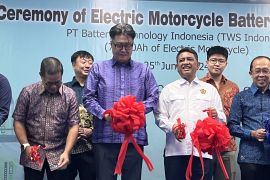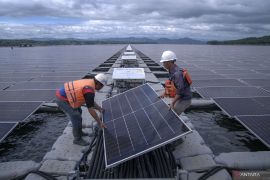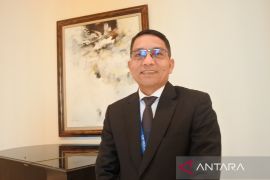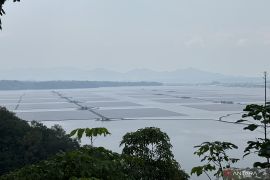Such collaboration was marked by the provision of Danish recommendations to Indonesia through the Regional Energy Outlook in the provinces of South Kalimantan, North Sulawesi, Gorontalo and Riau.
"Denmark has provided support for the development of the Regional Energy General Plan (RUED) for the four provinces," Energy and Mineral Resources Minister Arifin Tasrif said in a statement received in Banyuwangi on Friday.
The Minister explained that the Danish Government assisted in analyzing the most suitable settings for the four regions in regard to affordable, resilient and environmentally friendly power systems, as well as how renewable energy resources can replace fossil energy as alternatives.
"The challenge is to take advantage of the potential of renewable energy resources in the outlook and reduce dependence on fossil energy," he said.
The partnership was welcomed by Danish Minister of Development Cooperation, Rasmus Prehn. The recommendations given by Denmark are expected to create a cheaper and more efficient EBT industrial climate.
"Besides being able to increase the utilization of renewable energy, this recommendation is able to create a cheaper and more efficient prices for renewable energy resources from the technology applied," he said.
In addition, The RUED outlook recommendations given by Denmark stated that North Sulawesi has the potential to develop renewable energy resources, especially hydro, while Gorontalo has great potential to develop diesel fuel. If these two provinces succeed in developing hydro energy, solar energy and in using natural gas to replace coal, then these two provinces can reduce greenhouse gas emissions by approximately 50 percent by 2030.
As for the South Kalimantan Outlook, the province's energy generation is still dominated by the use of coal, but wind energy, solar energy and natural gas combined cycles can be an inexpensive alternative energy to replace coal.
If by 2030 the province the province can succeed in developing renewable energy by up to 34 percent for electricity supply, then greenhouse gas emissions could be reduced by 48 percent by 2030.
Lastly, on the outlook of Riau and Sumatra, as a whole, has the potential of renewable energy, particularly wind energy and solar energy, beyond the role of renewable energy described in the 2019-2028 RUPTL.
Solar energy and biogas are considered as competitive sources, given that there is good financing scheme. If the energy mix can reach 2/3 of Riau's electricity supply in 2030 according to the RUPTL, there will be savings in electricity infrastructure financing of 13 billion rupiah.
Related news: Pertamina projects extensive biofuel use in transportation by 2050
Related news: Govt to streamline regulation to expedite renewable energy development
Translator: Afut Syafril Nursyirwan/Aria C
Editor: Rahmad Nasution
Copyright © ANTARA 2019












